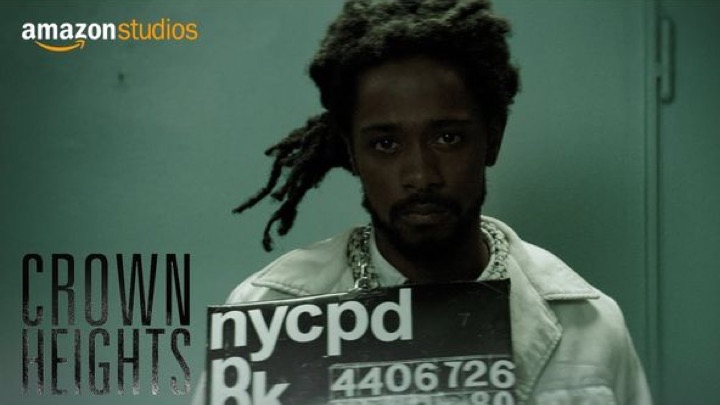“Crown Heights” – “Injustice anywhere is a threat to justice everywhere.” – Martin Luther King Jr.
“There may be times when we are powerless to prevent injustice, but there must never be a time when we fail to protest.” – Elie Wiesel
In 1980, Colin Warner (Lakeith Stanfield) lives with his mom in Brooklyn, NY and more specifically, in a neighborhood called Crown Heights. From Trinidad, this 18-year-old has some close friends and is working towards a car mechanic-certification. He is a good son and friend, but he – unfortunately – possesses an absolutely terrible habit of stealing cars for an ongoing group scheme.
On April 10, while walking home by himself, two New York City detectives grab and arrest Colin. He believes that the police are nailing him for auto theft, but to his complete surprise, they accuse him of murder, a crime that he absolutely did not commit. He did not know the victim and was not present at the crime scene. A miscarriage of justice soon follows in an unfiltered look at a failed criminal justice system and Colin’s unimaginable fate.
Although “Crown Heights” is a movie, a screenwriter did not dream up this tale while swimming in an alphabet soup think tank. Colin’s story is unfortunately true, and writer/director Matt Ruskin serves it on the big screen. As the film unfolds, it resonates as both an absorbing biopic and a public service announcement.
It is not a spoiler to announce that a jury convicts Colin, because the movie moves as swiftly as the downward speed of a judge’s gavel with just a 94-minute runtime. In fact, at the film’s seven-minute mark, the police throw Colin in a jail cell (just seven minutes after the movie begins), and after 18 minutes of screen time, Colin sits in prison for two years. Although Ruskin presents a pair of physical altercations during Colin’s incarcerated existence, he does not bog down the narrative with excessive prison drama that experienced audiences have come to expect. Instead, Stanfield conveys Colin’s plight and utter frustration with an effective and heartfelt performance through several phone and in-person conversations with the outside world and moments of reflection in solitude. Sure, the film moves quickly, but we simultaneously feel the days, months and years slowly trudge for Colin, while he is powerless to course correct the wheels of injustice.
We feel helpless too.
Meanwhile his mother and friends – like Carl King (Nnamdi Asomugha) – feel the same way. Their repeated efforts to free him fall on deaf ears, are wasted on a specific, incompetent legal ally and stumble due to ill-fated timing. Timing very much plays into the movie, as a series of historical U.S. political decisions change the legal landscape during Colin’s arrest and subsequent appeals, and not in his favor. Ruskin introduces these specific decisions (which I will not reveal in this review) and successfully communicates their unfortunate contributions towards Colin’s nightmare.
With seemingly equal contributions of Colin’s life on the inside and Carl’s driving determination to free his friend on the outside, “Crown Heights” strikes a balance of personal anguish and legal entanglement dramatics. In a similar fashion as the aforementioned scenes of concrete captivity, Ruskin does not sink us into drawn out, bureaucratic quicksand during the inexplicable court motions and unwarranted legal decisions. Instead, he efficiently delivers his points in a few key instances that effectively stir maximum outrage and exasperation. Additionally, the system’s racial biases marked against Colin do not go unnoticed either, as the uncomfortable, institutional stacked deck purposely hovers over the picture like an ever-present, cloudy haze.
A haze that continues to linger…37 years later.
⭐⭐⭐ out of ⭐⭐⭐⭐
Image credits: Amazon Studios; Trailer credits: Zero Media (YouTube)




